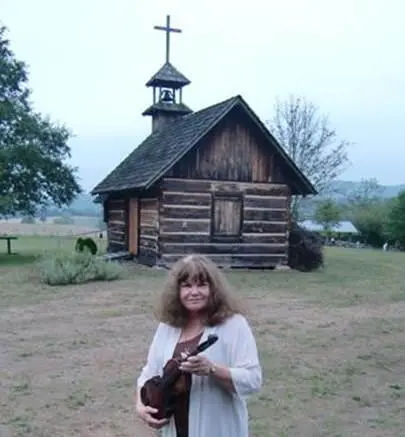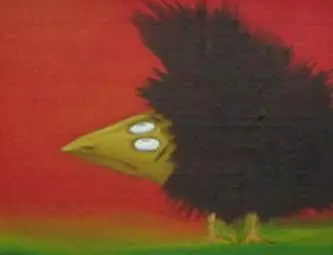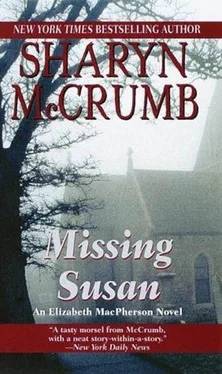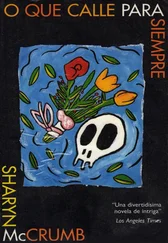“I can’t prove it,” said Elizabeth in a low voice. “And perhaps what you said was right: really clever killers usually get away with their first murder. Frankly, I think you’re a rather good fellow, and for all I know you might get acquitted anyhow.”
“I didn’t do it,” Rowan said plaintively.
She fixed him with a meaningful stare. “But this must not happen again, do you hear? I shall say nothing to anyone, but if I ever hear of anyone else on your tours meeting with an accident, I shall go to the police at once. Do you understand?”
He sighed. “Yes. It shan’t happen again. You have my word.” There was no use arguing with her, he thought. Her mind had seized up like a frozen motor, holding this one thought against all suggestions to the contrary. There was nothing for it but to play the humble felon, and vow to sin no more. Then she would feel noble. He supposed it was better than telling her the truth: that if anyone had killed Susan Cohen, it was she.
Sometime later, after the police had investigated the incident and had sensibly deemed the matter a case of accidental death, Rowan had led the quiet gaggle of tourists to the Ten Bells, where he’d insisted on standing them drinks to counteract the shock. They had talked for some time in sorrowful tones about poor Susan and what a sad ending to the tour this was. No one wanted to finish the Ripper tour: they had seen death enough that evening.
As they left the pub to summon taxis to Bloomsbury, they each shook hands with Rowan Rover and wished him well. Elizabeth, the last to leave, regarded him more in sorrow than in anger. “It was like Leopold and Loeb, wasn’t it? You thought you were smarter than the police. You had to prove you could get away with it just once?”
“I’ve often thought of that,” Rowan admitted truthfully. He did not add that he had never been tempted to try it.
“It stops now,” she said firmly, and walked away.
Rowan stayed in the Ten Bells for another hour, smoking a pack of cigarettes and thinking about murder. It was an art for which he was grateful to have no talent whatsoever.
Several days after the end of the tour, Rowan Rover had reflected farther on the unfortunate matters of the past few weeks and he decided that greater penance was required. After much thought and even more Scotch, he wrote a carefully worded letter to Aaron Kosminski, telling him that his niece Susan had been killed in an unfortunate traffic mishap in Whitechapel. It was an accident, he wrote, underlining the phrase twice. He was not daft enough to spell out the murder-for-hire agreement in a letter, but he hoped that his explanation of his own innocence would be clear and that Kosminski would read between the lines and realize that his orders had not been carried out The sacrifice of the money was a small price to pay for a clear conscience, Rowan decided. Well, not a small price, but he wasn’t used to having any money anyway. With his lectures and his crime writing, he could continue to scrape by as he always had, living mouth to hand.
He had not expected to receive a reply to his ostensible letter of condolence, but in mid-October an airmail letter bearing American astronaut stamps arrived at his London postal address. It was postmarked Minneapolis. With shaking hands, not entirely attributable to a hangover, Rowan Rover tore open the envelope and read the terse reply:
Dear Mr, Rover:
I remember with pleasure our meeting at your lecture in Whitechapel .
I know that my niece Susan enjoyed her travels on your mystery tour, and we are grateful for your expression of sympathy to the family. We want you to know that we do not blame you in any way for her death, which the London police assure us was a tragic accident .
Please accept the enclosed donation from her estate for the Ripper project that we spoke of at our dinner together. I wonder if you remember how I like my steak .
Yours sincerely,
Aaron Kosminski
Enclosed in the letter was a check for fifteen thousand pounds, the remainder of the agreed-upon sum for the killing. For almost thirty seconds Rowan toyed with the idea of destroying the check, but a recent spate of financial ultimatums dissuaded him. After all, he reasoned, Kosminski is guiltier than I am. Why should he receive all the ill-gotten loot? He decided to send a present to Emma Smith, who was recovering nicely in Colorado, and to give some of the money to charity in Cornwall. The rest would be distributed among his needy creditors. The wages of sin, he decided, were minimal, all things considered.
The final paragraph of the letter puzzled Rowan Rover for quite some time, since he clearly remembered that he and Kosminski had not dined together. Their only meeting had been over drinks in the Aldgate pub. Finally the reference to the steak enlightened him, and he was able to decipher Kos-minski’s own encoded comment: well done .

***















